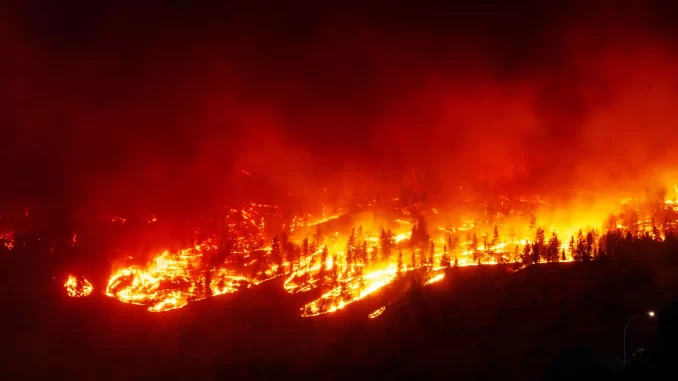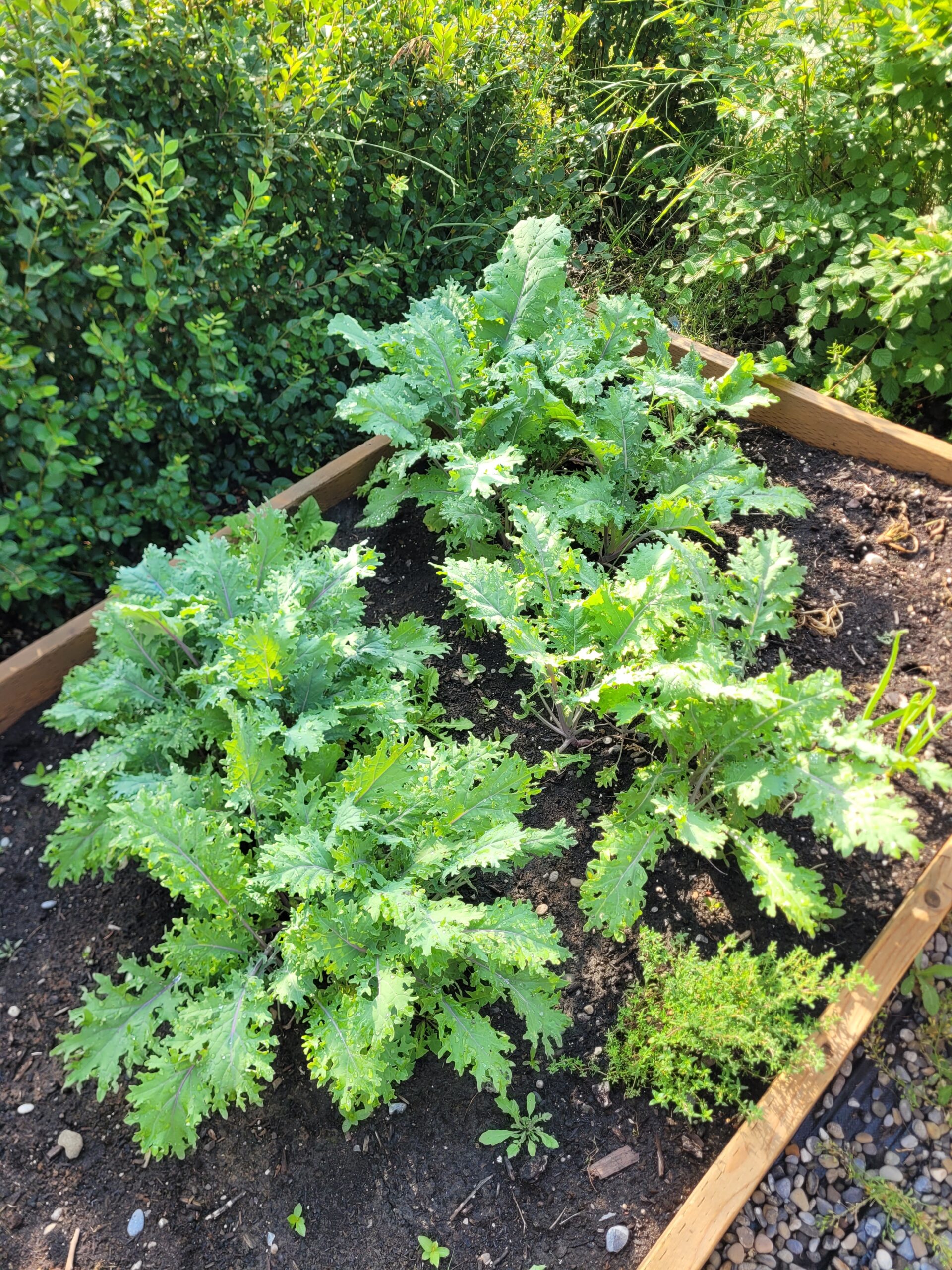
Estimated reading time: 12 minutes
2023 has been the most severe year for wildfires in North American history (so far). The flames have already ravaged every province and territory. In total, 174,000 square kilometers have burned (so far). This is quadruple the area enveloped by the enormous western United States wildfires that occurred what feel like eons ago, in 2020. It is double the area consumed by the previous record-holding fire season, which took place in the incomprehensibly distant past — the long forgotten year of 1995. Fortunately, despite its massive size and destructive impact on Canadian forests, this year’s fires seem to be an aberration. After all, 2022, which is the only year from which we can infer a pattern, was a quiet year for fires — only 16,500 sq km burned. Nobody remembers the 2021, 2017, 2015, 2014, or 2013 fire seasons, although each was considered awful in its time. And why should they? Those piddly fires only ravaged between 30,000 and 50,000 sq km each. Even less memorable were the fire seasons of 2019 and 2018, yet a cursory examination reveals that both those years had awful, albeit regionally confined, wildfires.
Some Canadians might remember the 2016 fire season. The 2016 Fort McMurray wildfire displaced close to 90,000 people from their homes and caused the most damage to business, property, and oil sands operations of any natural disaster in Canadian history (so far). Nevermind that, in terms of area burned, 2016 was less than even 2022. Although Indigenous nations were affected by the Fort McMurray fires, and Indigenous nations are disproportionately affected by wildfires generally, cynical observation suggests the fire became memorable only once it scorched the predominantly white suburbs of Waterways, Beacon Hill, and Abasand.
When the news consistently reports that something is in some way unprecedented, once in a blue moon, once in a generation, once in a lifetime, etc. the effect is that people fail to notice the gradual deterioration in the normal condition of that thing. Suddenly, the wildfire season starts in March when just five years ago it started in April, and five years prior to that, in May. Events that affect settler populations are magnified, while the same events are minimized when they affect Indigenous populations. This effect is called Shifting Baseline Syndrome, but one might be more familiar with the term “boiling the frog,” which is the propaganda technique that induces it. The technique isn’t restricted to news about wildfires, or even weather and climate — most subjects, from health to economics, are reported upon in this way. Eventually, everyone feels like the dog in the iconic 2013 meme and K.C. Greene comic, “This Is Fine.”
Things aren’t fine. In its insatiable hunger for profit, the Canadian forestry industry clearcuts swathes of ancient, biodiverse forests. When they replant trees, as part of so-called green capitalist initiatives, they plant only a few species. The result is that the new tree plantations are essentially kindling. They can’t rightfully be called “forests” because a forest is not just “many trees,” but a dynamic ecosystem of soil microbes, mosses, fungi, insects, and animals — the destruction of which is actually what renders environments susceptible to flames. Likewise, it was the clearing of the Canadian prairies’ complex meadowscapes to graze cattle, and monocrop canola and other cash crops, that increased the environment’s flammability. In Canada’s Northwest Territories, global warming has altered weather patterns and melted polar ice, resulting in widespread ecological change and, again, environs that are increasingly vulnerable to fire. These effects are cumulative and cyclical. Wildfires emit greenhouse gasses that warm the Earth, which causes larger fires to emit more gasses, drastically altering global weather systems and the seasons. Although these changes manifest first as fire and drought, they’re also to blame for the vicious tropical storms and monsoons that devastated Pakistan in 2022, and Libya in 2023, resulting in thousands of deaths. Eventually, this will all culminate in an oven planet that bakes all its living organisms to death. No, things aren’t fine, but it’s an existential imperative of the owning class, the bourgeoisie, to ensure the masses continue believing they are — to continue believing that these events are disparate and unconnected from the capitalists’ activities, and from capitalism altogether, when the opposite is true.
The ruling class likes things the way they are. As they exploit the environment (and us), they’re acutely aware of a great danger: that we won’t take it any more. They study their history books — well, to be honest, they don’t; they’re dissolute wastrels who don’t do much other than lounge on their billion-dollar-yachts. They pay people to study history for them. And what history teaches them is that they have to beware of violent revolutions, especially those with decolonial or communist character.
One of the ways they work to stay in power is to delay the recognition of these impossible conditions for as long as possible, and one of their tactics is propagandizing people into believing that circumstances are relatively okay here, they must be worse elsewhere, and there’s no connection between here and there. In several works (i.e., “The Collapse of the Second International” and “Left-Wing” Communism: an Infantile Disorder), Lenin observed that a revolutionary situation can only occur when three conditions are met:
- when the oppressed classes no longer want to live in the current way
- when the ruling classes are no longer able to rule and govern in the current way
- when a crisis affects both the oppressed and ruling classes, spurring the former to action, and destabilizing the latter.
In May Day Action by the Revolutionary Proletariat, Lenin adds that “the bourgeoisie [does] everything in its power to back counter-revolution and ensure ‘peaceful development’ on this counter-revolutionary basis.”
But a byproduct of technological progress under capitalism is that it has sufficiently improved the lives of westerners such that these conditions occur with increasing rarity. For instance, since the 1970s, the Canadian province of Alberta has been afflicted by drought with increasing frequency, yet this hasn’t manifested into widespread starvation due to improved technology that rescues food crops in otherwise blighted years. Furthermore, capitalist overproduction ensures that millions of kilograms of imported produce from the imperial periphery go to waste each year. Our so-called peaceful development and counter-revolutionary stability depends upon this waste and exploitation. We are a far cry from the mass poverty that galvanized the Russian Revolution or the Chinese Revolution. The real danger and the real misery remain hidden from us (so far).
From the George Floyd uprisings of 2020, the riots in France over the murder of Nahel Merzouk in 2023, the murder of Tortuguita at Cop City, and to the refusal of the Canadian government to search Winnipeg landfills for the bodies of murdered indigenous women, events that could have been the straw that breaks the camel’s back come and go. This is just as the ruling class wants it — just as they have designed it to be. We can’t manage to grasp the moment and fight against them before the moment slips away.
But what does this have to do with wildfires? In a sane world, climate events such as this year’s wildfires and floods would represent a political crisis too unconscionable to ignore. The system that utilizes its police to terroristically execute thousands of people, and the corporate system whose practices condemn thousands to death each year are one and the same. But instead of a political crisis, we have political theater.
Past wildfire seasons involved an expected amount of backbiting between bourgeois politicians, phonily accusing each other of not caring. For instance, Justin Trudeau was accused of apathy about 2016’s Fort McMurray fires. This year’s wildfires are especially noteworthy for the conspiracy theories about them. Conspiracies, such as the idea that “green terrorists” or “antifa” started the fires with the goal of justifying “climate lockdowns,” abound. It’s no longer that Trudeau is apathetic; now his agents are maliciously setting the fires to convince you that climate change is real so the World Economic Forum can control you (and he can justify his carbon tax).
Belief and propagation of these conspiracies convolutes any serious conversation and delays any mitigation of climate change. Whether cooked up by the ruling class or simply amplified by them, conspiracy theories like this prevent us from seizing the critical moment; they prevent us, the working class, from even realizing the nature of our enemy, let alone drawing the sword. Ultimately, it’s not the case that Trudeau is either apathetic or enacting a secret scheme — his purpose is to maintain the normal extraction of profit. Both obfuscations are part of the same strategy that gave us the term “climate change” to begin with. Recall that it was the notorious Republican political strategist, Frank Luntz, who advocated replacing “global warming” with “climate change” in the vernacular, since it’s a much less frightening phrase, and more malleable to the political agenda of the ruling class. This agenda is actually quite simple. In fact, it’s so simple it barely qualifies as an agenda at all; it’s to maintain the exploitation of people and nature for profit, aka the status quo, for as long as possible. This is the class interest of the bourgeoisie.
They would have us believe it’s not the case that capitalism is omnicidal, that human exploitation of the planet and each other is gradually heating the planet past the point it can sustain life. The planet’s not warming, it’s changing. Are these changes natural, or caused by humans? Who can say?
They would have us believe that, even if the changes are caused by human activity, the activity is part of a plot. It’s certainly not an indictment of their mode of production, or system of governance. The world isn’t burning because of something they have participated in, or let happen — it’s obviously some other (((them))).
Historically, accusations involving a them are antisemitic. From the 1389 Holy Saturday Pogrom in Prague, to the Khmelnytsky Uprising (1648 – 1657) in present day Ukraine, in which tens of thousands of Jewish people were massacred, Jews have been the frequent scapegoats for the ruling class, to use as a bulwark against the frustrations of peasants and oppressed classes. In the late 19th and early 20th centuries, incitements against Jews were given anti-communist flair by the Okhrana, the Tsar’s Secret Police, so that violence could be directed against would-be revolutionaries. Germany’s Nazis developed this strategy to its apotheosis, and the result was the Holocaust.
Just as it happened in Germany 90 years ago, people who believe these narratives are rapidly coalescing into an alt-right fascist movement in Canada. Although the victim group may change nominally, the tactics used to turn the working and oppressed classes against each other remain unchanged.
Scapegoating, deferral, and denial are more comfortable than admitting one’s entire way of life is murdering all life on the planet — but this is exactly what’s taking place. My comrades at USU have already written about the profitability of ecocide as it related to Maui’s fires and about how the bourgeoisie’s narratives about climate change are ruses. Their analyses are also true of Canada’s fires.
Still, among many Canadians, none of this information causes the general alarm it should. The powder keg of mass resentment has not ignited, even while the country burns. Sure, every summer is a bit smokier than the last, but in the average Canadian metropole, everything seems normal. This is the ultimate boon of colonial exploitation — the privilege to live in normalcy while your internal colonies, and indeed the world, burns around you.

